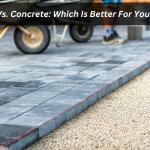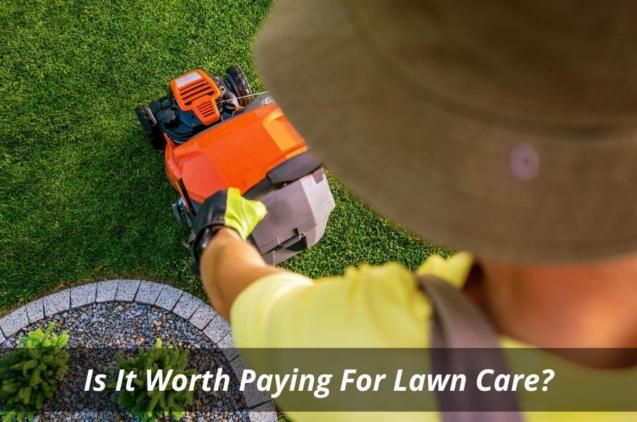
Paving Vs. Concrete: Which Is Better For Your Home?
Paving and concrete are two of the most popular materials used for home improvement projects such as driveways and walkways. While these materials may seem similar, they have distinct differences that can greatly impact the outcome of your project. It's important to know the pros and cons of each material before making a decision.
Choosing the right pavement for your home can add value to your property and enhance the overall aesthetics of your exterior. But before starting a paving project, there are a few things you need to know.
In this article, we will discuss the cost of pavers, the benefits of driveway pavers, the advantages of concrete paving, years of experience in paving services, and the pros and cons of each material. By the end of this article, you will have a clear understanding of which material is better suited for your paving job.
Paving Benefits and Drawbacks
Paving offers several benefits over poured concrete slabs.
- Options for customisation
- Durability
- Cost-effectiveness
- Maintenance requirements
However, there are also drawbacks to consider. The installation process for paving can be time-consuming and may require underground services to be moved. Additionally, if the pavers are not installed correctly, they may become uneven over time, which can be a tripping hazard.
Concrete Benefits and Drawbacks
Concrete is another popular option for exterior surfaces. It offers several benefits, including durability. Unlike paving, which can shift and become uneven, concrete slabs are solid and can withstand heavy foot traffic or vehicles.
Secondly, concrete is cost-effective. While the upfront cost of installing a concrete driveway may be cheaper than that of brick pavers, the long-term cost savings are significant. Concrete requires minimal maintenance, which means that homeowners can save money on upkeep in the long run.
Thirdly, concrete can be aesthetically pleasing. With stamping concrete or exposed aggregate, homeowners can create unique patterns and designs that add character to their home's exterior.
However, there are also drawbacks to consider. Firstly, concrete is not as customisable as paving. While stamping and exposed aggregate can create unique patterns, it's not as versatile as the range of options available with pavers.
Secondly, concrete has a negative environmental impact. Cement, a key ingredient in concrete, is responsible for a significant amount of carbon emissions. Additionally, concrete requires a lot of water during the manufacturing process, which can contribute to water scarcity in some areas. Lastly, concrete can be high maintenance. It requires regular cleaning and sealing to maintain its appearance.
Comparison between Paving and Concrete
When deciding between paving and concrete, there are several factors to consider. Firstly, which material is better for which use case? For example, if you live in an area with harsh winters, paving may be a better option as it can withstand shifting caused by the freeze-thaw cycle. However, concrete may be better suited for areas with high temperatures, as it doesn't retain heat as pavers do.
Secondly, which is more cost-effective in the long run? While paving may have a higher upfront cost, it's more cost-effective in the long run as it requires less maintenance and is easier to replace if damaged.
Lastly, which requires less maintenance? If you're looking for a low-maintenance option, concrete may be the better choice. However, if you're willing to invest in regular cleaning and sealing, paving may be a better option.
When it comes to adding value to your home, choosing between paving and concrete can be a tough decision. Both options have their pros and cons, which is why it's important to consult a professional landscaping company like A1 Bargain Gardening & Landscaping Sydney to help you make the best decision for your home.
Paving offers versatility and a range of design options, while concrete is durable and low-maintenance. Whatever your preference, our team of experts can provide high-quality installation and maintenance services to ensure your home looks its best. Contact us today to learn more about how we can add value to your home through our landscaping services.



